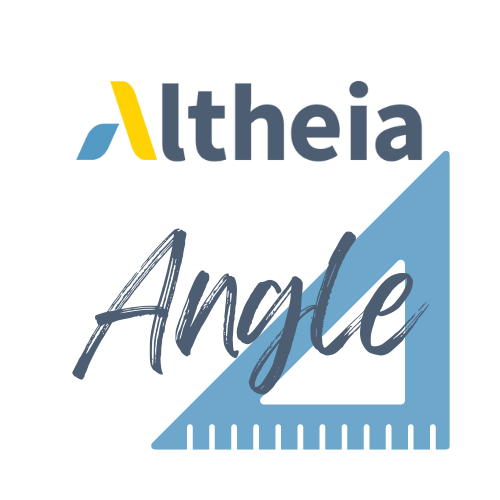
Altheia Appearing at the BETA MN Spring Showcase
We are excited to share that we’ll be at the BETA MN Spring showcase on May 15th, 2024 at the Lumiere in Minneapolis. Please make sure to swing by our booth if you’re planning to attend!

We are excited to share that we’ll be at the BETA MN Spring showcase on May 15th, 2024 at the Lumiere in Minneapolis. Please make sure to swing by our booth if you’re planning to attend!

Altheia is excited to announce that we are one of 15 companies selected to participate in the 2024 Spring cohort for BETA MN’s accelerator program.
We are truly excited to be part of this exceptional program with a strong track record for supporting early-stage startups like ours. We hope you’ll stay tuned and follow our journey!

The HHS released is final rule on AI transparency in December 2023. Since its inception, Altheia has been developing our product, Acuvia, with the intention of complying with future rules like this one, as we’ve been anticipating that scrutiny around AI use for decision support in healthcare would continue to grow.
In the first half of this year, we will begin our clinical trial with Acuvia, which is designed to address many concerns around AI use. We will have a 3rd party publish their results of our study, and with our own internal testing, we believe we will be compliant with the regulations as we go to market in 2025.
Here is a summary of the regulations and how Acuvia will comply with them.
Acuvia addresses this in several ways. First, a common dataset is used to ensure that the same information is aggregated for a given population. Second, all information is ingested from valid sources with the individual’s consent. Third, all HIPAA and privacy rules are followed, and the data is secure.
Acuvia generates risk profiles for individuals for 5 chronic diseases. Our predictive models use claims, clinical, and social determinants of health data consented for use by the individuals, who also can augment the dataset with additional information. The member can view all the data used in the creation of their risk profile. Acuvia also presents them with an accuracy metric of how certain the algorithm is about the result. Together, those 2 pieces of data are very useful to help individuals talk to their primary care physicians about their next steps.
Acuvia is an independent utility leveraging member-consented data with the ability to deliver risk stratification results to all stakeholders in the healthcare ecosystem. Its purpose is to provide an accurate assessment of clinical risk associated with 5 chronic diseases, which can be used by both clinicians and individuals to determine the best plan of care to mitigate the effects of disease. The one area where we suggest caution is for the approach used by clinicians from care and disease management companies. Discussing risk for chronic disease with someone who is just finding out that they need to work with their physician on a care management plan requires a well-trained clinical staff equipped to support those critical discussions.
Acuvia has full documentation on all data that was used to train our MVPs for Cardiovascular Disease, CKD, Hypertension, Diabetes and COPD. We also provide an array of reporting at the individual level for individuals as well as at the population segment and full customer levels, including ongoing performance monitoring. Our algorithms use ML and become smarter over time. Our current market approach includes an annual update of all algorithms to ensure our customers will get our most recent versions.
Our product, Acuvia, will move into clinical study and pilot phases in the first half of 2024. We had anticipated that further scrutiny around AI was forthcoming in 2023, so our strategy has been to ensure our product goes through a 3rd party review and is compliant with all rules and regulations related to AI and data security as it enters the market.
We look forward to providing more updates as we launch our clinical study.

I’ve been working with AI powered solutions for almost 15 years. In the beginning, the focus was on automation and trending to statistically support decision making as part of my operational roles. Later, I moved into working with predictive analytics and other more advanced AI solutions. From the beginning, the eventual power of AI and its ability to accelerate change was obvious. For me, it’s been an incredible journey to witness AI capabilities grow during this timeframe.
In today’s rapidly evolving healthcare landscape, the integration of Artificial Intelligence (AI) has emerged as a transformative force, promising a revolution in the way we approach medical care. With its potential to enhance accessibility, efficiency, and quality of healthcare services, AI is at the precipice of routinely being used to power inclusive solutions that cater to diverse populations. The intersection of AI and healthcare not only offers innovative tools but also presents a clear opportunity to address healthcare disparities and foster inclusivity.
Bridging Accessibility Gaps
AI-driven technologies have the capacity to bridge geographical and financial gaps in healthcare access. Telemedicine, empowered by AI, enables video and asynchronous consultations, diagnosis, and monitoring, providing healthcare access to underserved and remote communities. According to the NIH, telemedicine has shown substantial success in improving access to healthcare services, especially in rural areas where medical resources are scarce.
Personalized Care and Diagnosis
AI algorithms can analyze vast datasets to generate personalized treatment plans and predictive models. This supports the creation of tailored care plans that incorporate individual differences, including genetic predispositions, socio-economic factors, and cultural variations. For instance, AI-powered diagnostic tools like IBM Watson have exhibited accuracy in identifying diseases, thereby reducing misdiagnoses and ensuring equitable treatment for diverse populations.
It is in this space our product, Acuvia, firmly resides. Specifically, Acuvia will prioritize member outreach within a population based on not just diagnosed populations, but it will prioritize across all members based on risk profiles. That’s a major shift in approach for any entity doing case management and anyone seeking to manage population health and care intensity.
Enhancing Cultural Competence
This research paper from Johns Hopkins University discusses why cultural competency in healthcare is crucial for effective communication and understanding diverse patient needs. AI language processing tools equipped with natural language understanding capabilities can aid in translation services, enabling healthcare professionals to communicate with patients in their preferred language. Moreover, these tools can assist in recognizing cultural nuances, facilitating a more empathetic and culturally sensitive healthcare approach.
Challenges and Ethical Considerations
While AI holds immense promise in fostering inclusive healthcare, certain challenges and ethical considerations need to be addressed. Biases within AI algorithms, if left unchecked, can exacerbate existing disparities and perpetuate inequality. Therefore, it is imperative to continuously audit and refine these algorithms to ensure fairness and inclusivity across diverse demographics. It’s important to point out that those audits should be done by diverse teams of people and that the auditing team members aren’t consistently auditing the same algorithms. Equity and inclusion has to be a strategy at every step. Back in August, Jolly Nanda, our CEO and Founder, wrote a blog post talking about bias in AI and how to ensure that it’s not exacerbated.
Beyond bias, data privacy and security remain paramount. Safeguarding sensitive patient information is crucial to maintain trust in AI-enabled healthcare solutions. Comprehensive regulations and frameworks must be established to protect patient confidentiality and prevent misuse of healthcare data. From a practical application perspective, using the right tools at the right time and making sure those leveraging the tools are well-versed in their capabilities ensures that data is being used as disclosed.
Our product, Acuvia, directly addresses these challenges by leveraging clear communication about how data is being used, who can access it, and how it will be used in the creation of personalized risk profiles across our predictive models. Members choose to opt in, ensuring they’re in full control of their own data.
Future Prospects
As technology continues to advance, the synergy between AI and healthcare presents limitless possibilities. Collaborative efforts among healthcare professionals, policymakers, technologists, and ethicists can drive innovation while ensuring that AI solutions prioritize inclusivity and equity.
AI will be a catalyst for groundbreaking advancements, such as predictive analytics for early disease detection, personalized treatment regimens, and automated healthcare interventions. These innovations will not only revolutionize medical practices but also democratize healthcare, making it more accessible and equitable for all.
Acuvia, as we bring it to market, provides members and customers real-time risk assessments across 5 chronic diseases, which can be used to personalize intensity of care and enables members to intervene in their own predicted health outcomes. This begins to level the playing field across demographics because nothing is left open to interpretation – Acuvia provides both the risk profile and the corresponding expected accuracy of the prediction. Members can use this to discuss their health with their doctor, secure in the knowledge that they have a clear interpretation of the claims and clinical data being used to assess their health.
The integration of AI in healthcare holds tremendous potential to revolutionize the industry and change the way patient-centered care is delivered. As AI continues to evolve, the potential for inclusive healthcare solutions expands exponentially. The key lies in harnessing this technology responsibly and ethically, ensuring that it benefits everyone, regardless of background or circumstance.
In this era of technological innovation, the union between AI and healthcare stands poised to redefine the future of medicine—one that is inclusive, empathetic, and accessible to all.


As a minority-owned, women-led business, we’re thrilled to announce that our company has been granted the 2024 Minnesota Angel Tax Credit certification status! This recertification is a testament to our innovative approach and the hard work of our dedicated team.
For investments made with us in both 2023 and 2024, Minnesota’s Angel Tax Credit provides a 25% credit to investors or investment funds making equity investments in startup companies focused on high technology, new proprietary technology, or a new proprietary product, process, or service in specified fields.
This program has been instrumental in supporting startups and small businesses like ours, providing us the financial resources we need to drive innovation and create a lasting impact in our industry. This credit will fuel our growth, enable us to push boundaries, and continue contributing new innovations to our industry.